Are you facing a situation where late rent fees feel overwhelming? You're not alone; many renters find themselves in difficult financial circumstances at times. In this article, we'll explore how to effectively communicate with your landlord and request a waiver for those pesky late fees. Keep reading to discover helpful tips and a sample letter that can make your request more compelling!
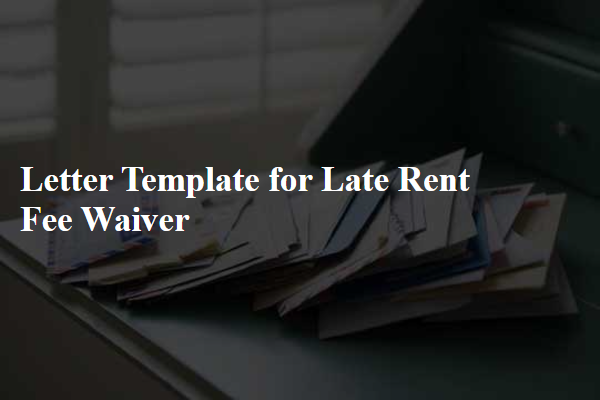
Renter's Information
In rental agreements, tenants facing unexpected financial burdens can seek a waiver for late rent fees. Many landlords, particularly in urban areas like New York City, where rental markets are competitive, may consider waiving fees of approximately 5% of the overdue amount if presented with valid reasons. Factors influencing a successful request include unforeseen circumstances such as medical emergencies, job loss affecting income, or natural disasters impacting living conditions. Documentation such as pay stubs or medical bills can strengthen the case for waiver consideration. Effective communication with landlords, often through email or formal letters, should detail the situation respectfully while expressing an understanding of the rental agreement terms.
Landlord's Information
A late rent fee waiver request involves clear communication regarding the landlord's information. The landlord's name should appear prominently at the top, followed by the complete mailing address, including street name, city, state, and zip code, ensuring accurate identification. Including the landlord's contact number is crucial for facilitating easier communication. Additionally, specifying the property address associated with the rental agreement provides contextual clarity, helping to avoid any confusion regarding the tenant's residence. This structured presentation of the landlord's information not only conveys professionalism but also establishes a formal tone for the request.
Explanation of Financial Hardship
A letter template for a late rent fee waiver serves as a formal document that tenants can use to request leniency from their landlords regarding overdue rental payments. This template typically includes an explanation of the financial hardship the tenant is experiencing, which may involve unexpected medical expenses, job loss, or other personal crises that impact their ability to pay rent on time. Incorporating specific details about the situation can strengthen the request, illustrating the tenant's commitment to fulfilling their obligations once the financial strain alleviates. Providing supporting documentation, such as pay stubs or medical bills, may enhance the credibility of the appeal. An effective letter should maintain a respectful tone and clearly articulate the tenant's circumstances while expressing gratitude for the landlord's understanding.
Request for Waiver and Justification
In many residential agreements, tenants face late rent fees if payments are not made on time, typically within a grace period of five days. This fee, often ranging from $50 to $150, can be financially burdensome, especially during unforeseen circumstances like job loss or medical emergencies. Providing a solid justification, such as documented proof of income loss or unexpected expenses, strengthens the request for a waiver of this fee. Additionally, referencing local tenant protection laws, such as laws implemented during the COVID-19 pandemic, may help support the appeal. Communicating with the property manager or landlord in a respectful manner can facilitate a favorable resolution, particularly if the tenant has a history of timely payments.
Formal Closing and Contact Information
A late rent fee waiver can significantly alleviate financial stress for tenants facing unexpected challenges. Various reasons such as a sudden job loss, medical emergencies, or natural disasters can lead to delays in rent payments. Landlords in cities like New York, where rent regulations are stricter, may consider waiving these fees to maintain positive landlord-tenant relationships. Effective communication through a formal request can express understanding and appreciation for the landlord's flexibility. Ensuring clear contact information, such as the tenant's phone number and email address, allows for timely responses and fosters open dialogue regarding future payments or arrangements.
Letter Template For Late Rent Fee Waiver Samples
Letter template of request for late rent fee waiver due to financial hardship.
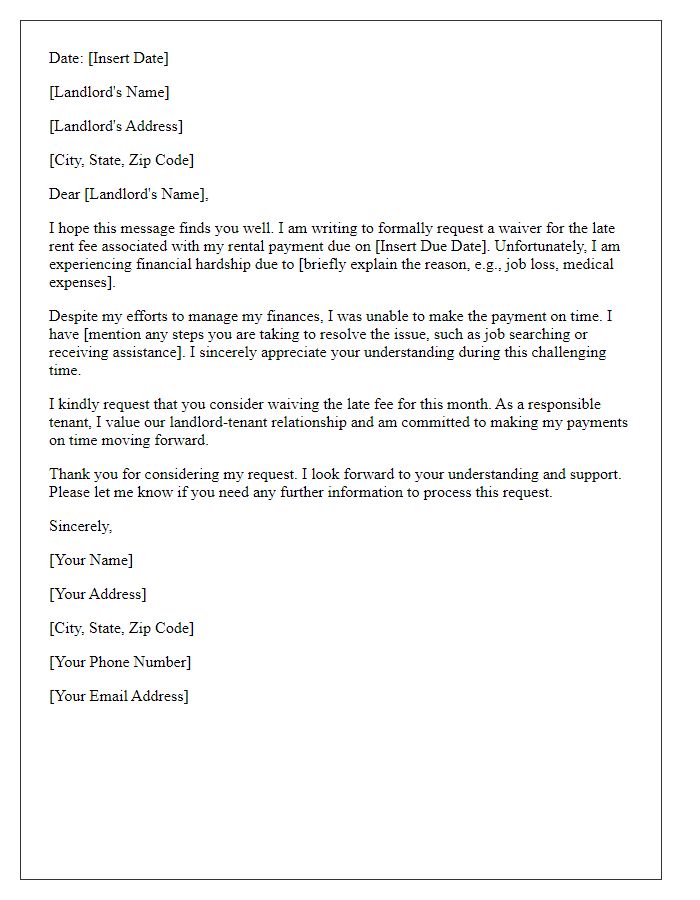
Letter template of appeal for late rent fee waiver citing unexpected medical expenses.
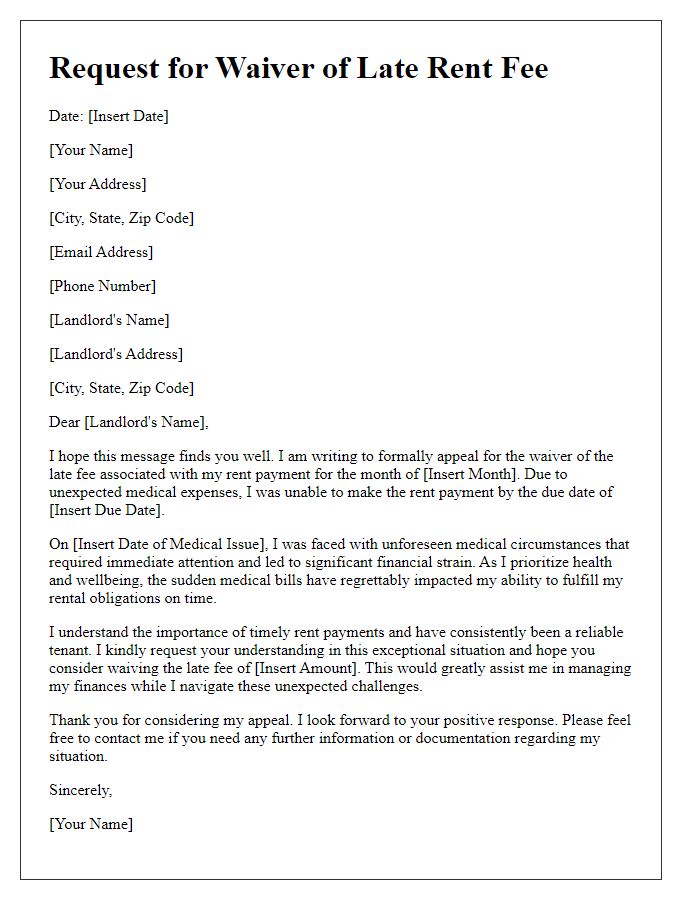
Letter template of justification for late rent fee waiver because of job loss.
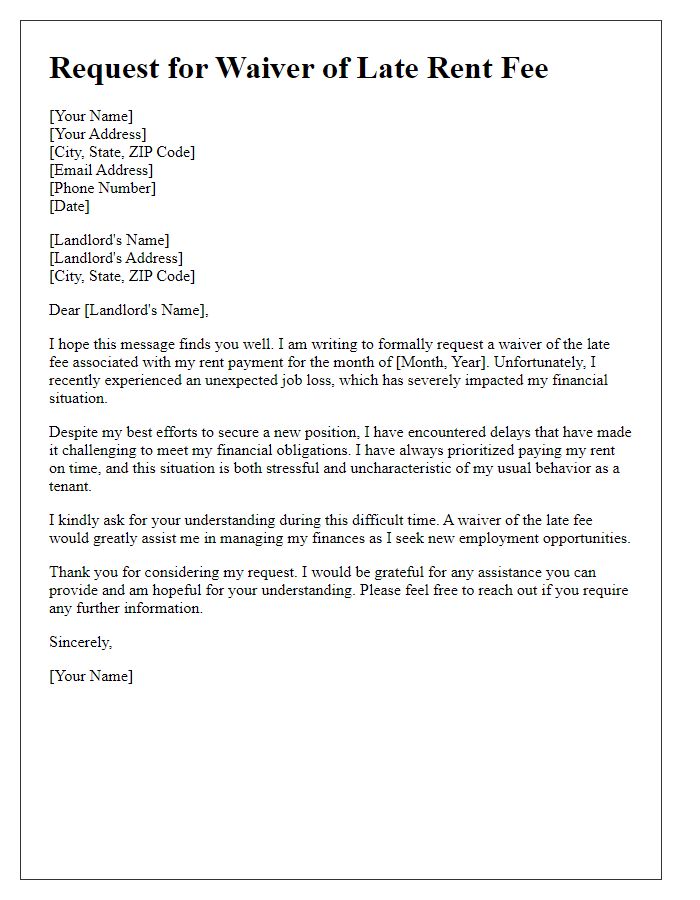
Letter template of explanation for late rent fee waiver related to family emergency.
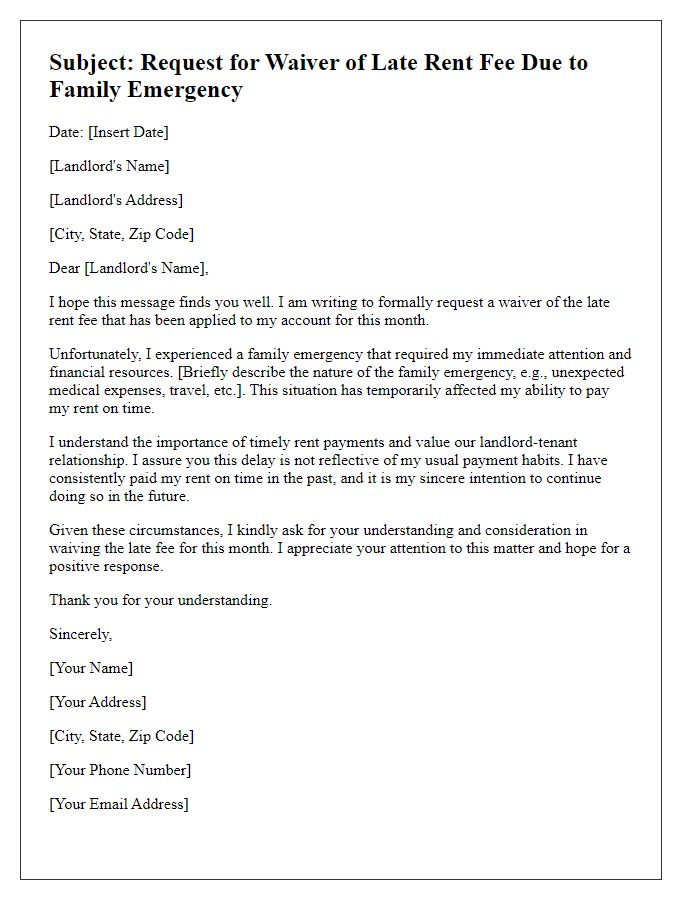
Letter template of request for late rent fee waiver for upcoming rental assistance approval.
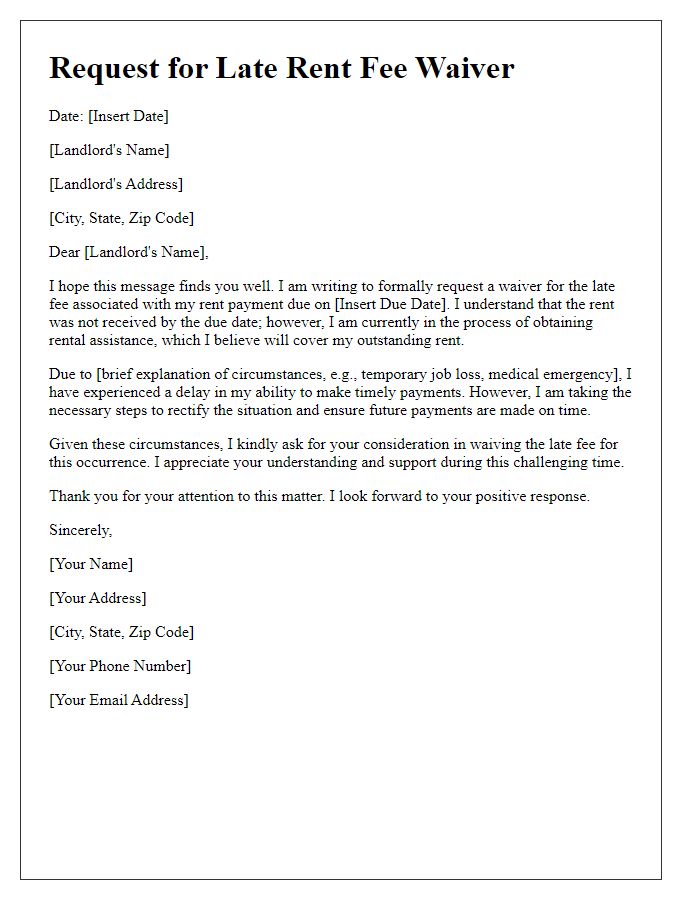
Letter template of petition for late rent fee waiver due to natural disaster impact.
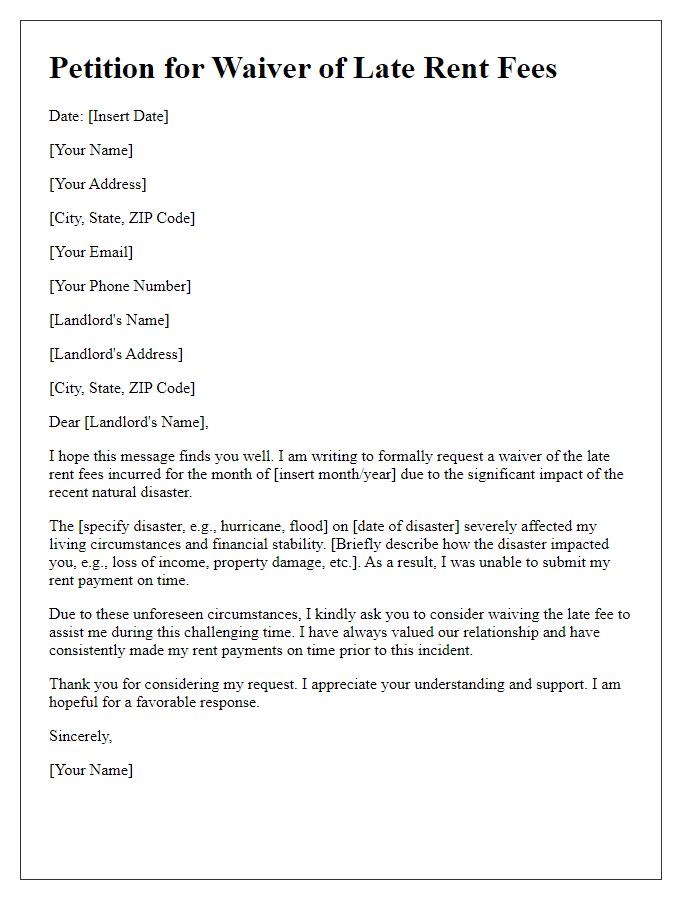
Letter template of inquiry for late rent fee waiver based on previous timely payments.
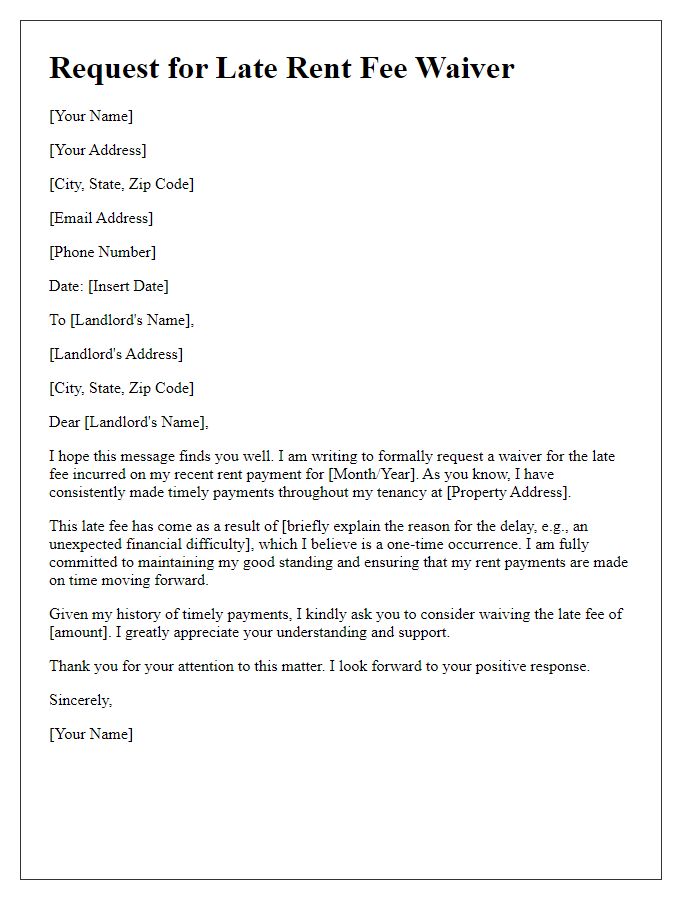
Letter template of solicitation for late rent fee waiver because of landlord-tenant agreement misunderstanding.
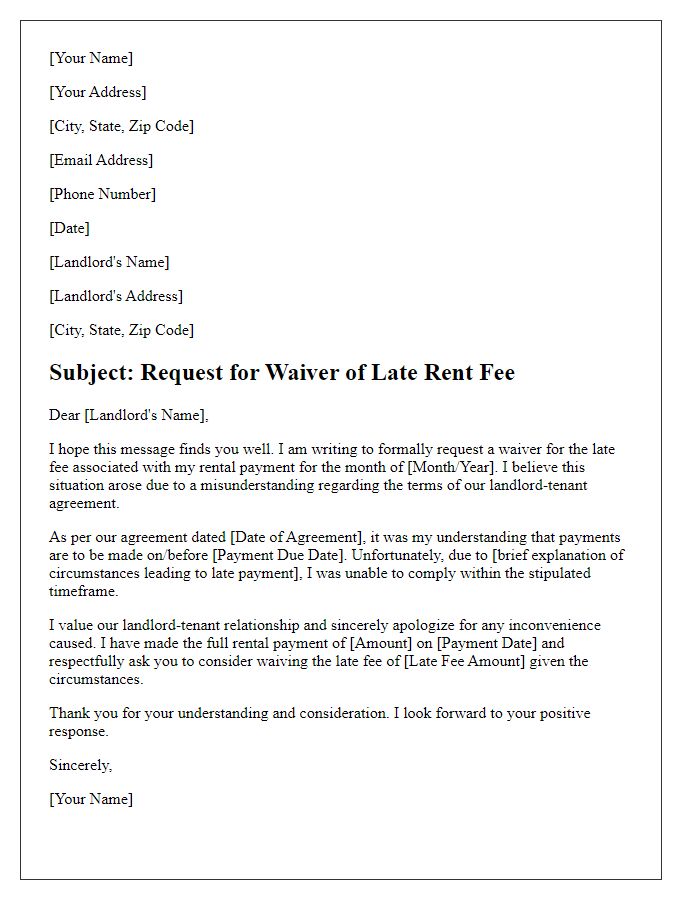
Letter template of plea for late rent fee waiver owing to prolonged illness.
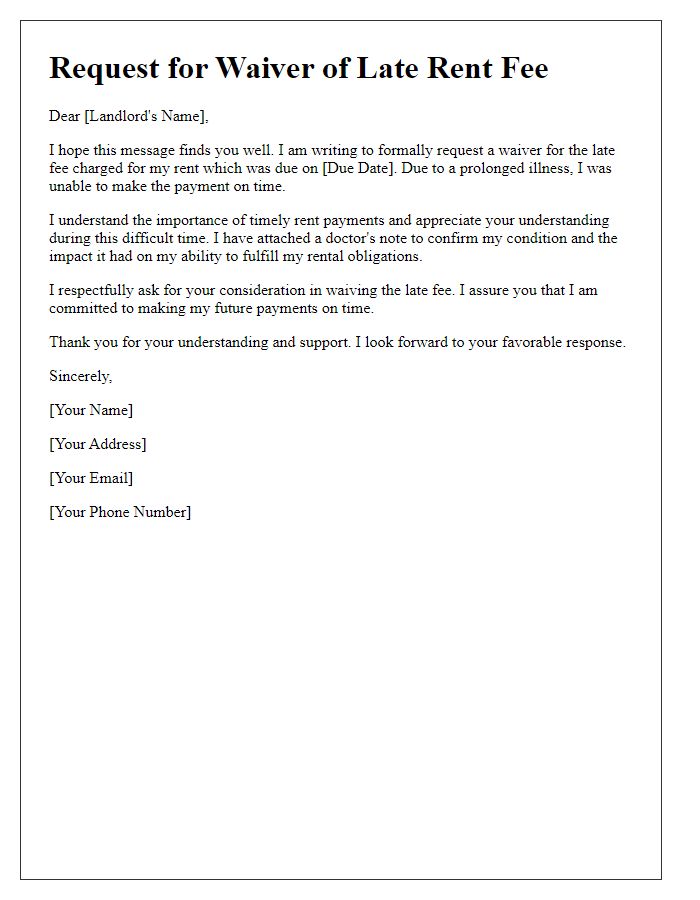

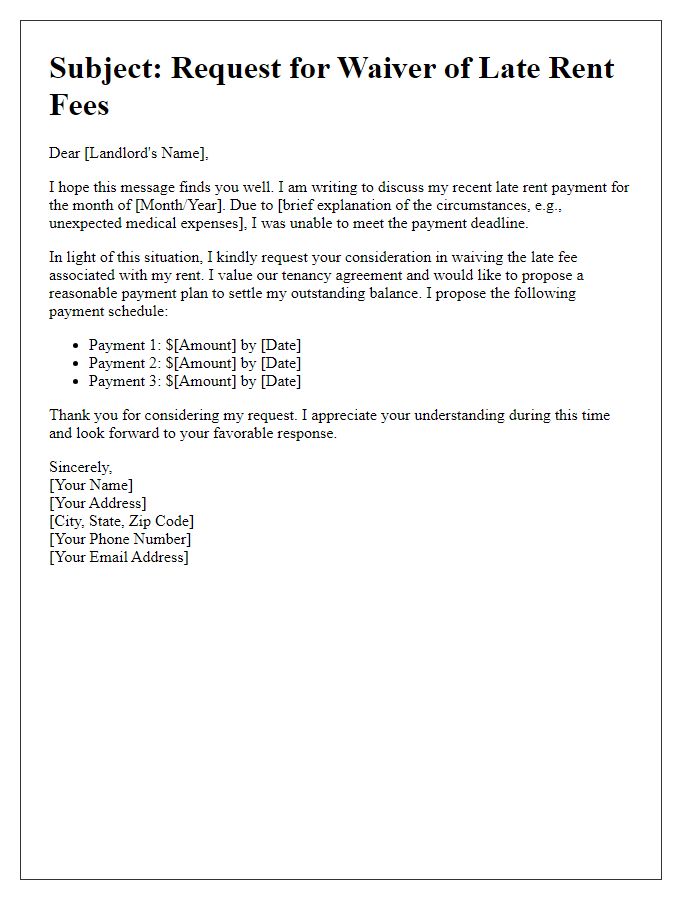

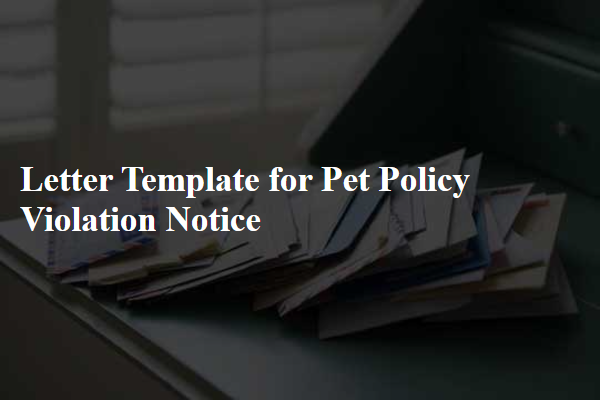
Comments